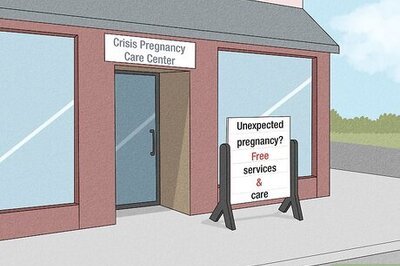
views
ATLANTA: Georgia will offer federally subsidized health insurance to its residents only through private brokers under a plan approved Thursday by President Donald Trump’s administration.
A separate part of the plan would offer Medicaid to some of the state’s poorest able-bodied adults, but only on the condition that they work, volunteer, receive job training or attend school.
Center for Medicaid and Medicare Services Administrator Seema Verma approved the waivers from normal federal law on Thursday on behalf of President Donald Trump’s administration during an appearance with Republican Gov. Brian Kemp at the Georgia Capitol.
Under Kemps proposal, which is more limited than other states, uninsured adults in Georgia who make no more than the federal poverty level would qualify for Medicaid assistance if they spent at least 80 hours a month working, volunteering, training or studying. They would also have to pay monthly premiums.
Work requirements in other states have been approved by the Trump administration but tied up in court challenges.
Opponents have attacked the plan’s failure to fully expand Medicaid, as well as elements of the plan that would let private companies control its insurance marketplace.
The federal poverty level is just under $12,500 for an individual. Medicaid expansion, as originally envisioned under President Barack Obama’s federal health overhaul, planned for Georgia to offer state-federal Medicaid coverage to all able-bodied adults making up to 133% of the federal poverty level.
Georgia will also spend state money on a reinsurance program that would allow companies to lower monthly premiums for all customers. Twelve other states have received approval for reinsurance programs, according to data from the Kaiser Family Foundation.
Georgia officials say their proposals are responding to a bleak health care environment. Average premiums for some Affordable Care Act health plans in the state have increased by more than 40% over the past two years to nearly $7,500 a year, according to the governors office. Enrollment in ACA plans in Georgia has declined by 22% since 2016 and now stands at nearly 460,000 people.
Exiting the federal marketplace and not setting up a state marketplace is the main innovation that Georgia is offering. Kemp’s administration says local brokers or private websites will provide a better customer service experience and offer more options. Georgia says it won’t offer plans that don’t meet federal benefit levels, backtracking from an original proposal to use federal money to subsidize plans that offered fewer benefits.
Kemp says the plan will cost $218 million a year, with all elements phased in by 2023.
Disclaimer: This post has been auto-published from an agency feed without any modifications to the text and has not been reviewed by an editor
Read all the Latest News and Breaking News here












Comments
0 comment